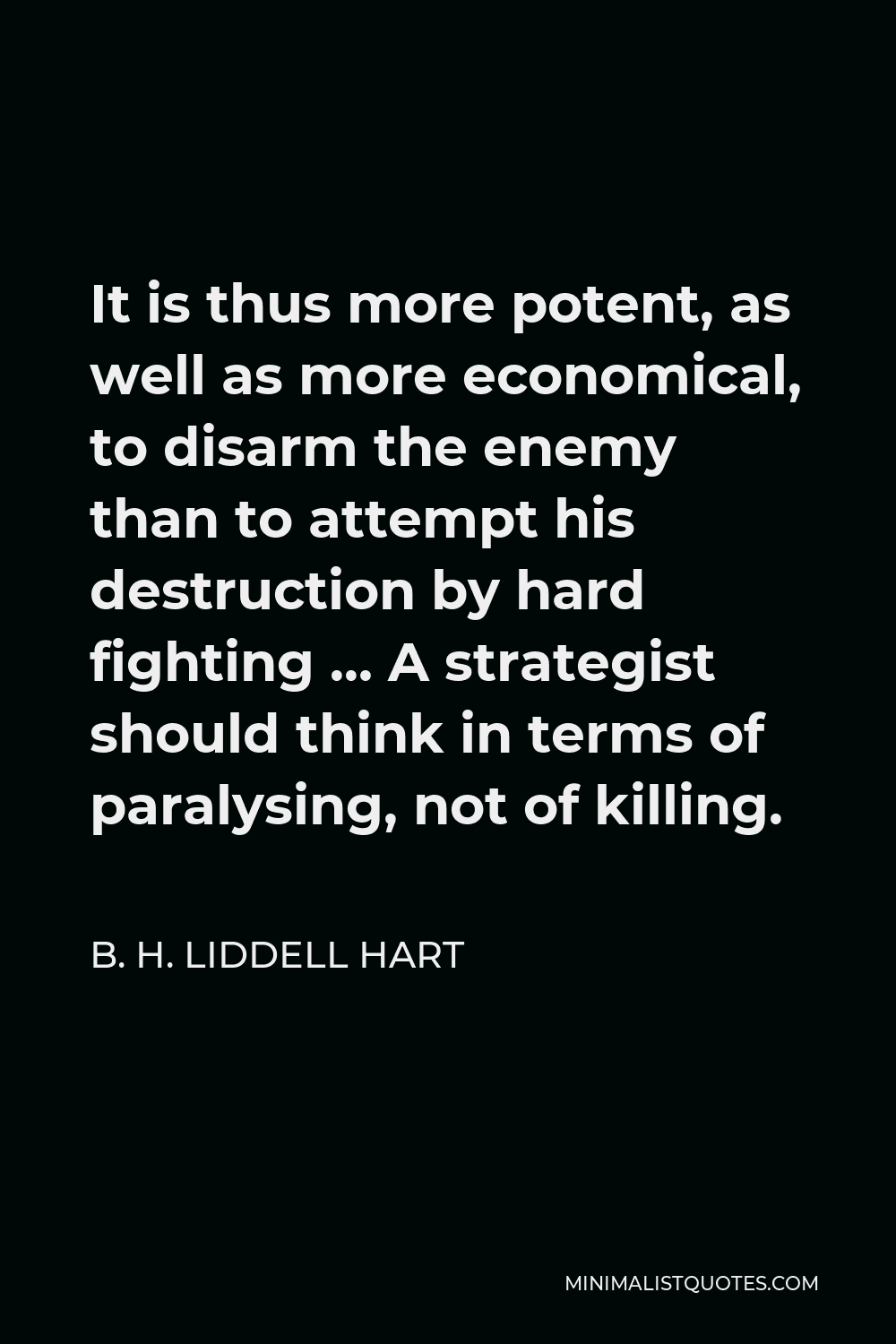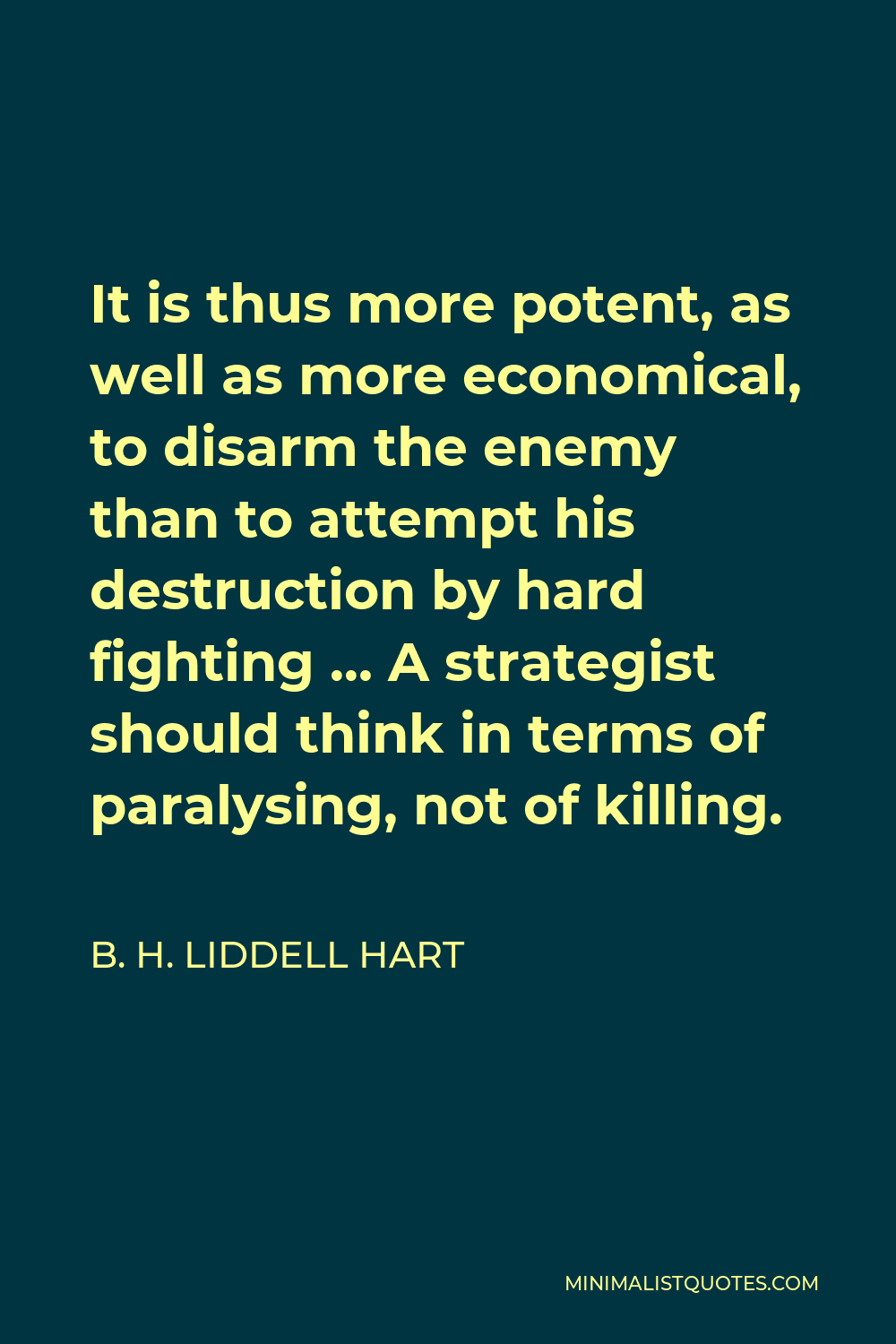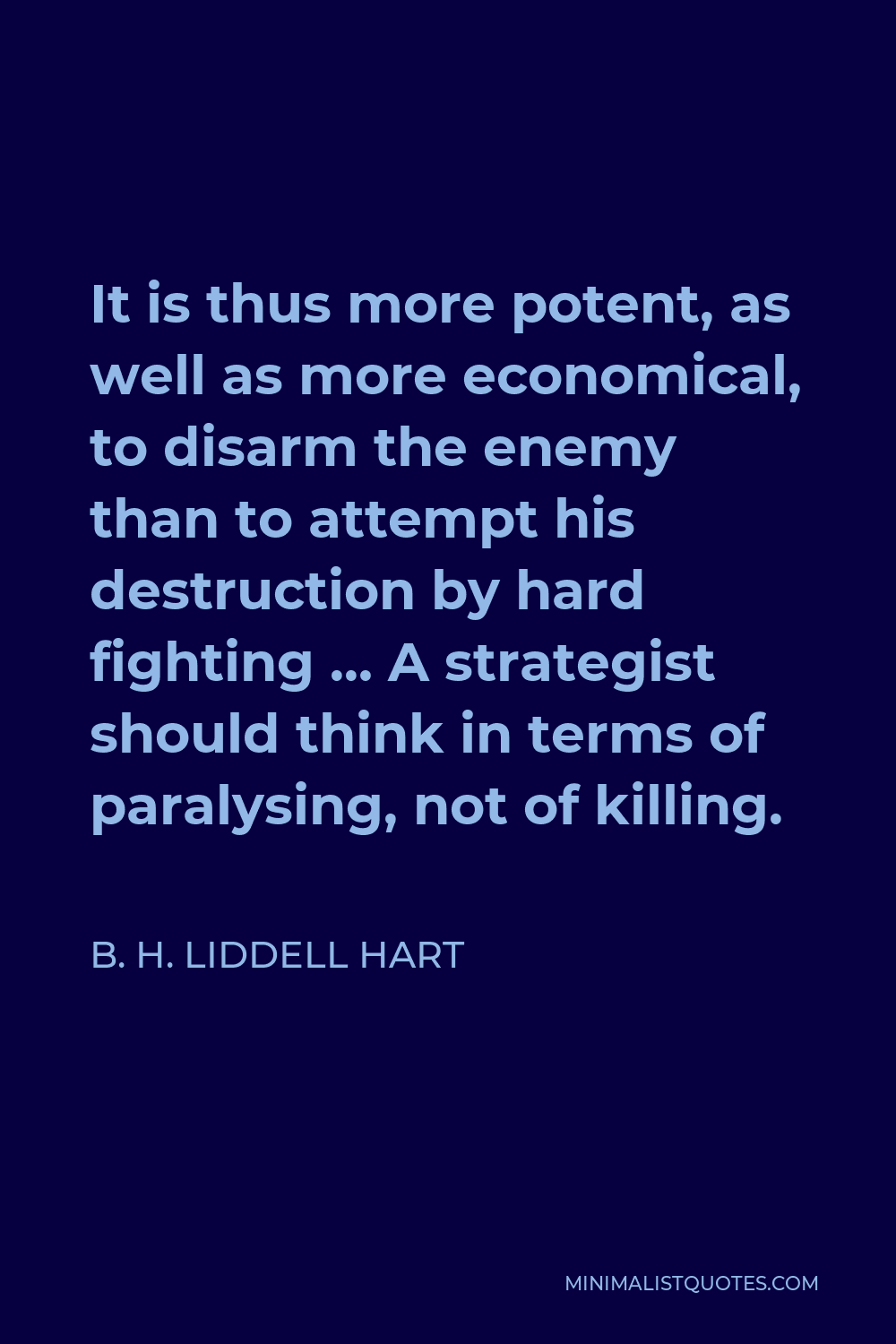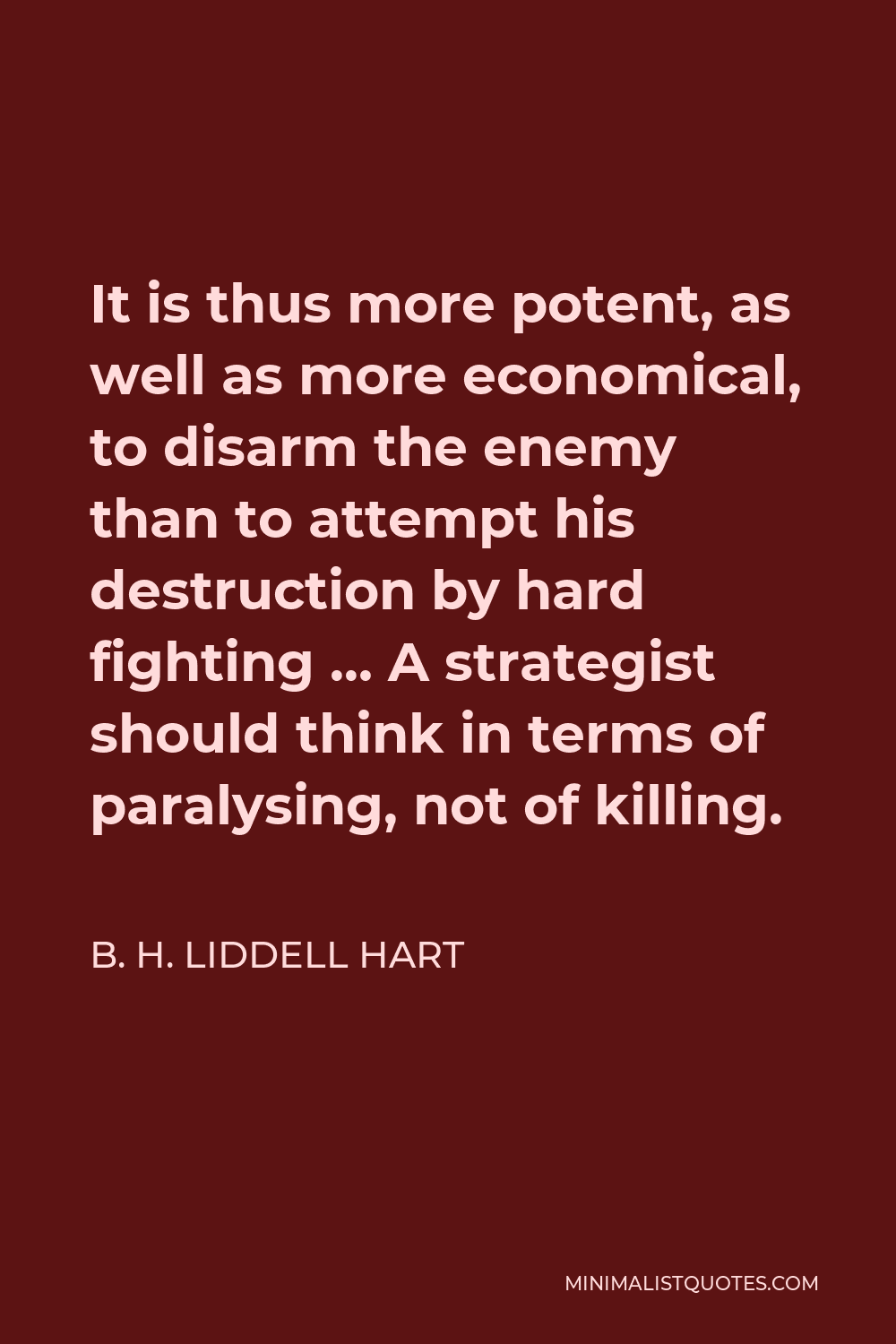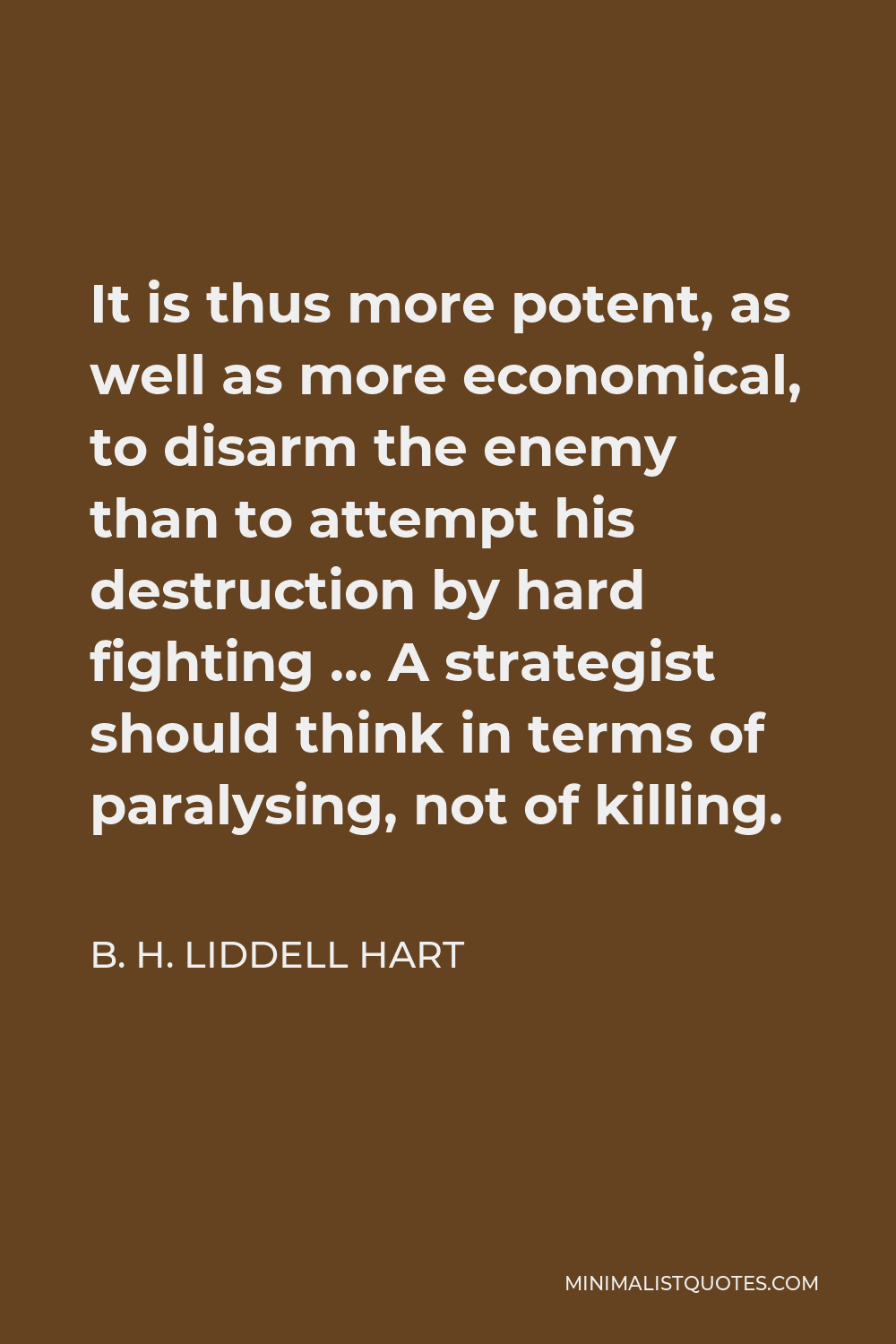The effect to be sought is the dislocation of the opponent’s mind and dispositions – such an effect is the true gauge of an indirect approach.
B. H. LIDDELL HARTIt is thus more potent, as well as more economical, to disarm the enemy than to attempt his destruction by hard fighting … A strategist should think in terms of paralysing, not of killing.
More B. H. Liddell Hart Quotes
-





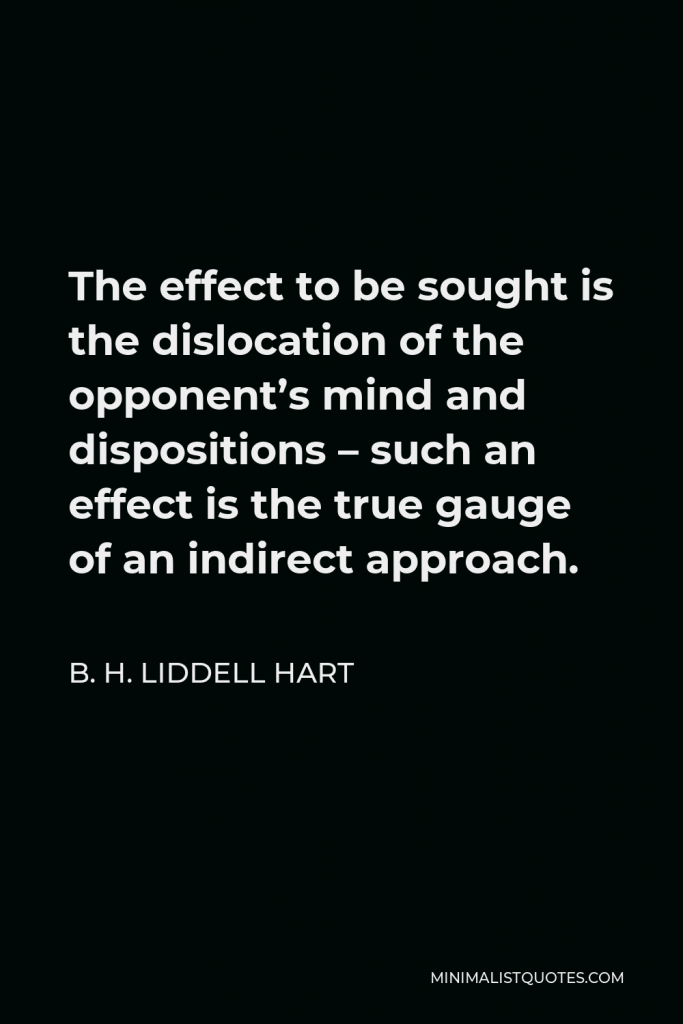

-





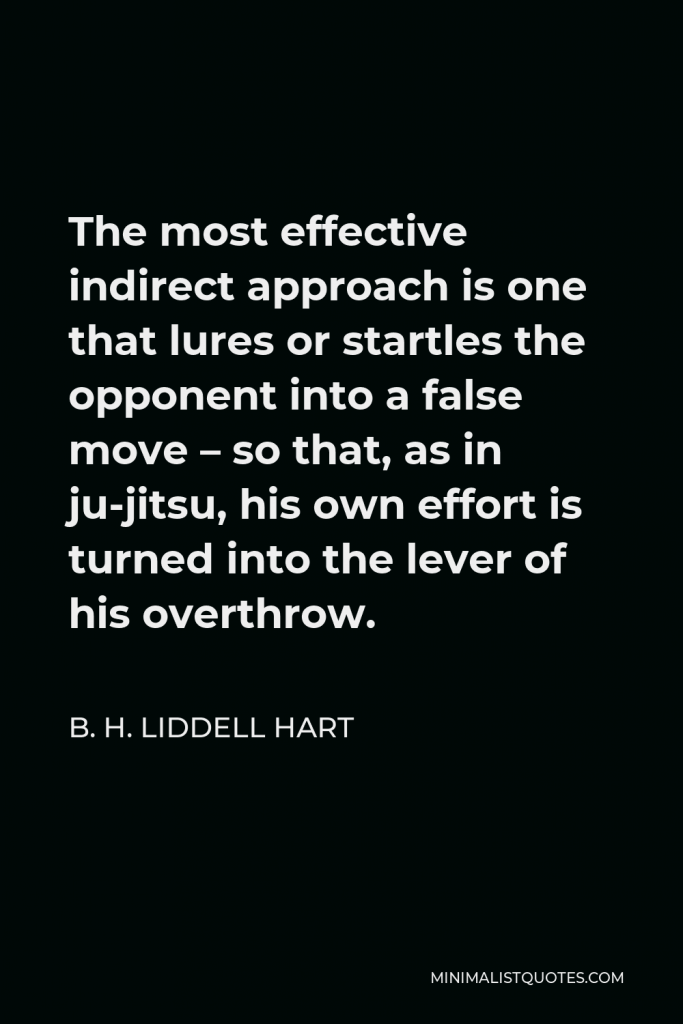

The most effective indirect approach is one that lures or startles the opponent into a false move – so that, as in ju-jitsu, his own effort is turned into the lever of his overthrow.
B. H. LIDDELL HART -





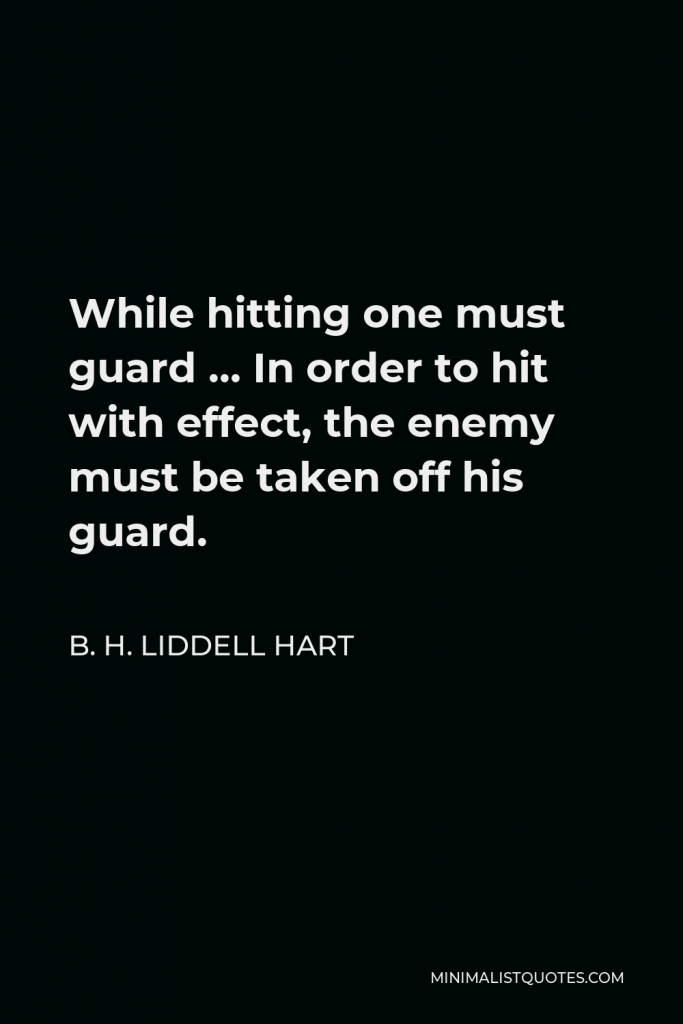

While hitting one must guard … In order to hit with effect, the enemy must be taken off his guard.
B. H. LIDDELL HART -





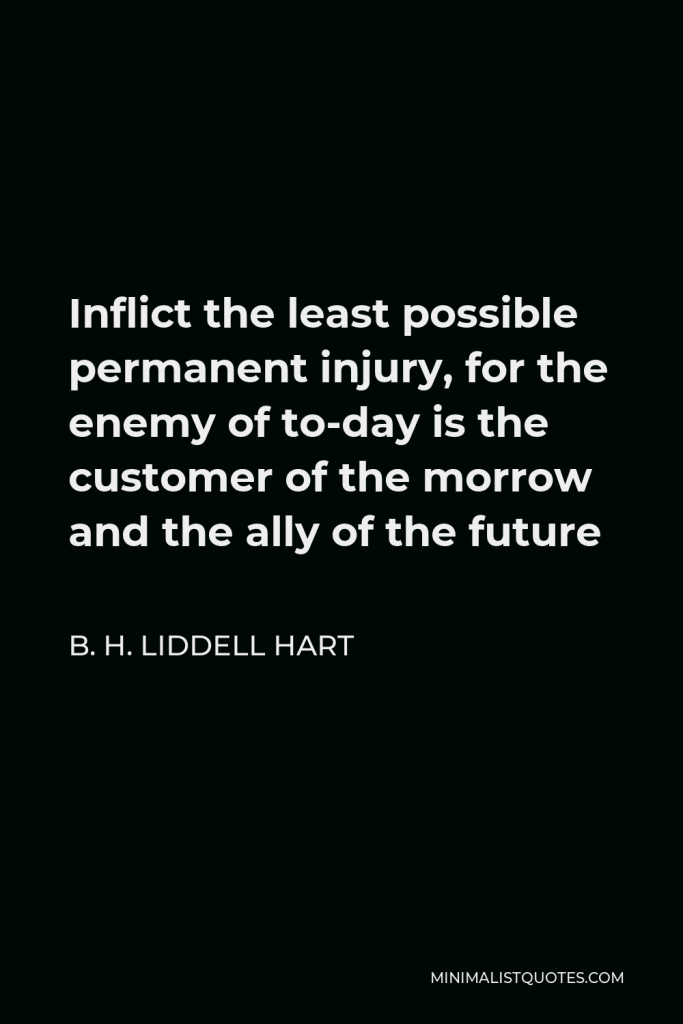

Inflict the least possible permanent injury, for the enemy of to-day is the customer of the morrow and the ally of the future
B. H. LIDDELL HART -





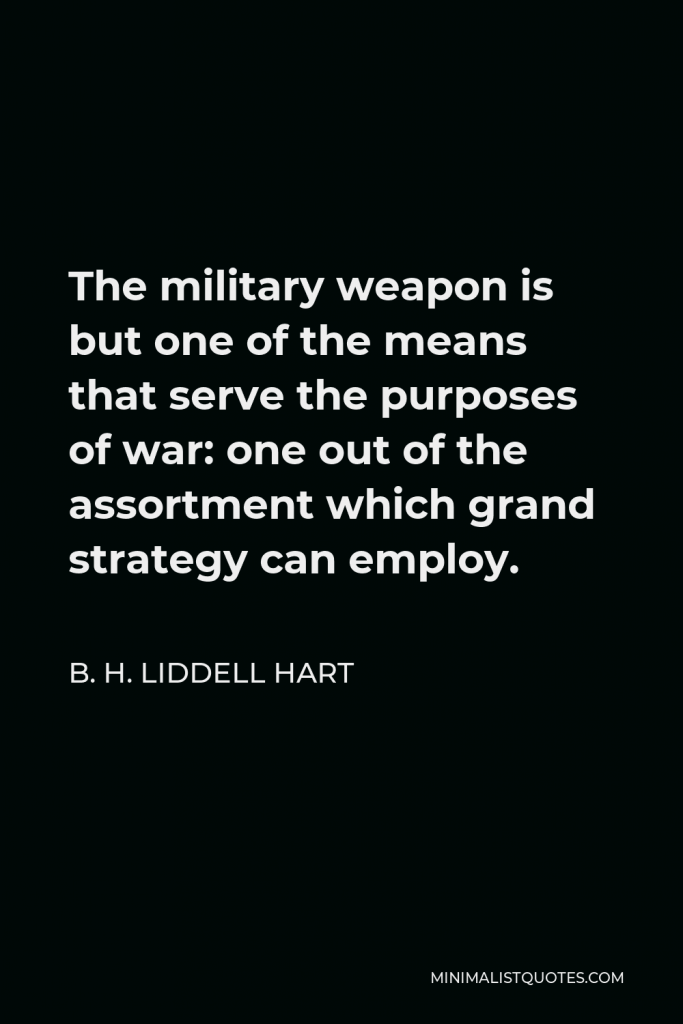

The military weapon is but one of the means that serve the purposes of war: one out of the assortment which grand strategy can employ.
B. H. LIDDELL HART -





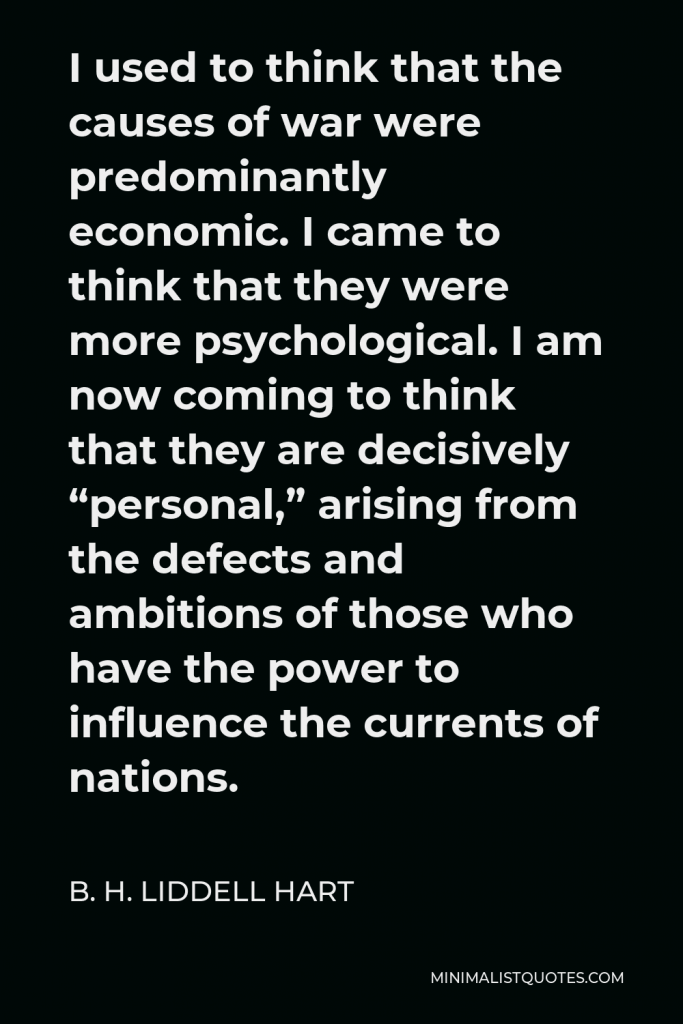

I used to think that the causes of war were predominantly economic. I came to think that they were more psychological. I am now coming to think that they are decisively “personal,” arising from the defects and ambitions of those who have the power to influence the currents of nations.
B. H. LIDDELL HART -





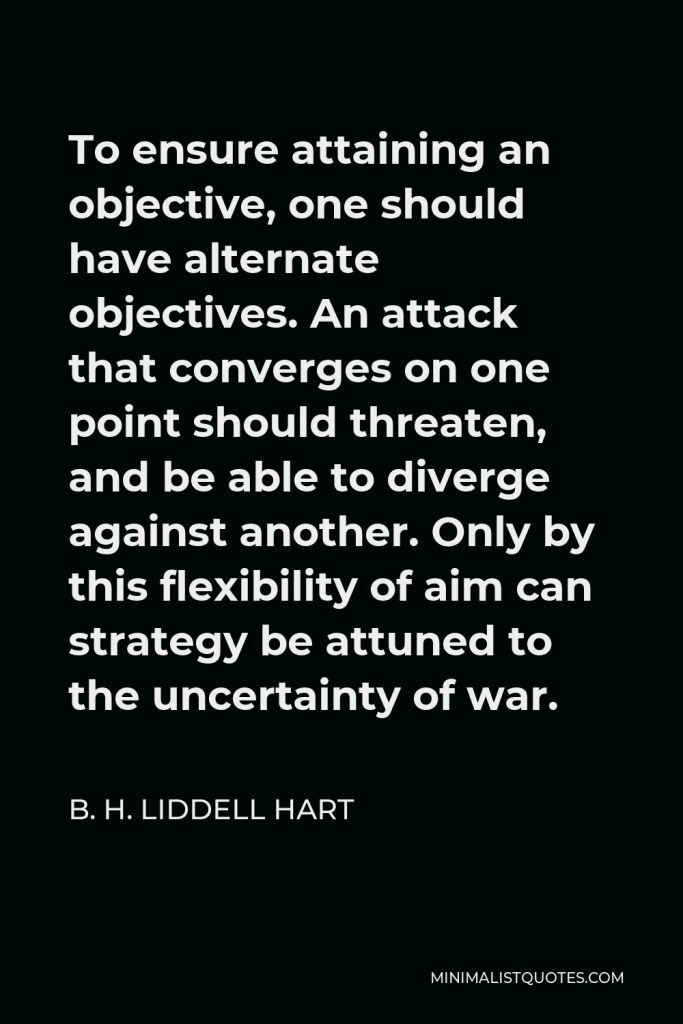

To ensure attaining an objective, one should have alternate objectives. An attack that converges on one point should threaten, and be able to diverge against another. Only by this flexibility of aim can strategy be attuned to the uncertainty of war.
B. H. LIDDELL HART -





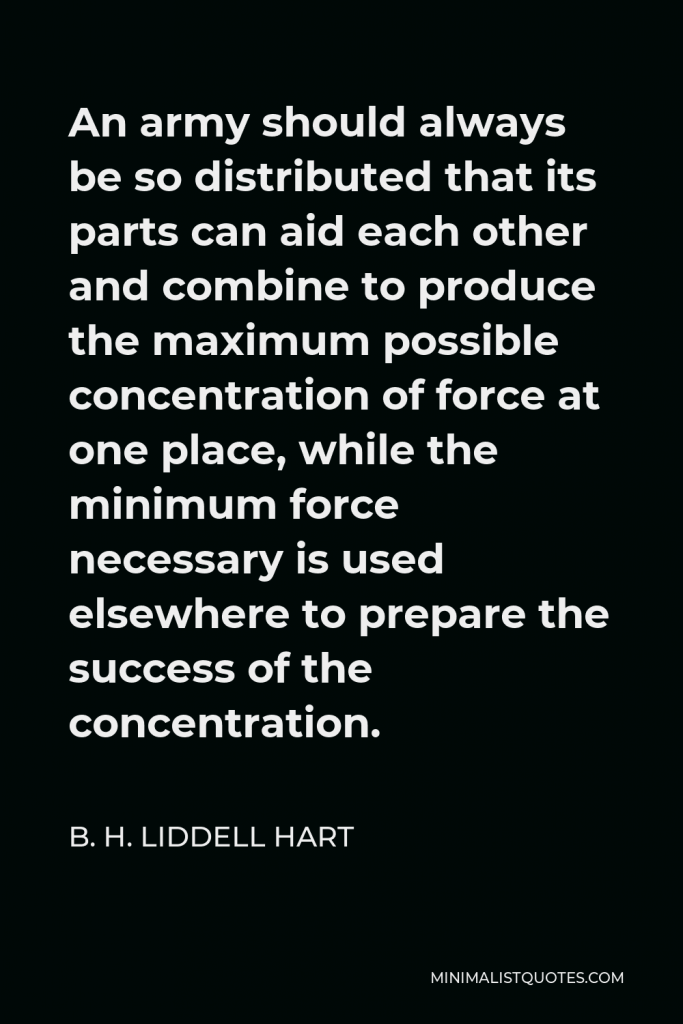

An army should always be so distributed that its parts can aid each other and combine to produce the maximum possible concentration of force at one place, while the minimum force necessary is used elsewhere to prepare the success of the concentration.
B. H. LIDDELL HART -





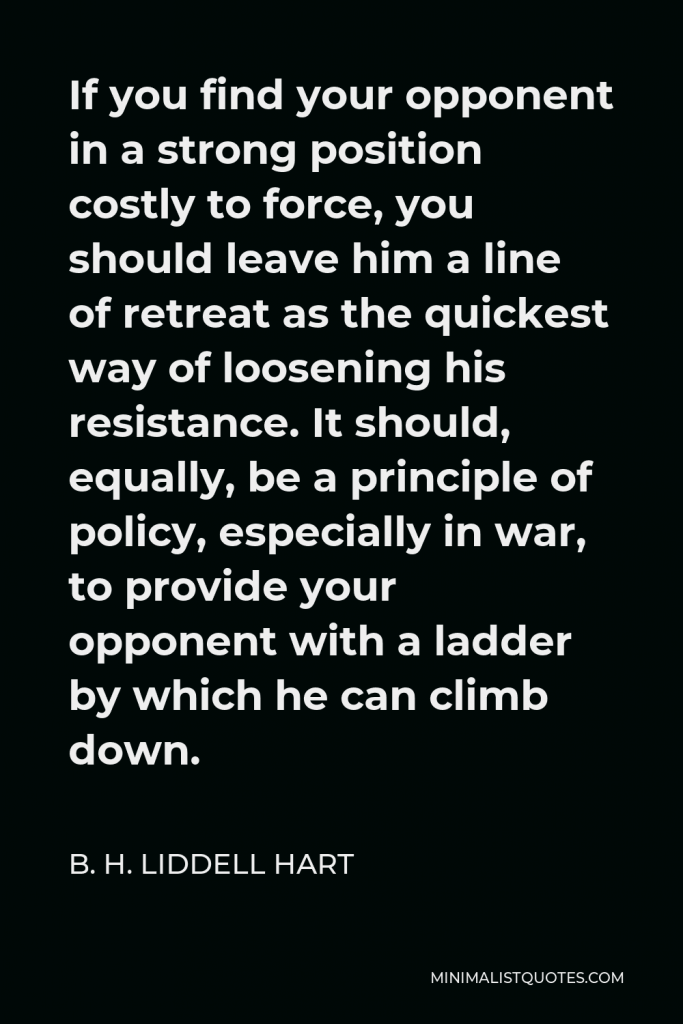

If you find your opponent in a strong position costly to force, you should leave him a line of retreat as the quickest way of loosening his resistance. It should, equally, be a principle of policy, especially in war, to provide your opponent with a ladder by which he can climb down.
B. H. LIDDELL HART -





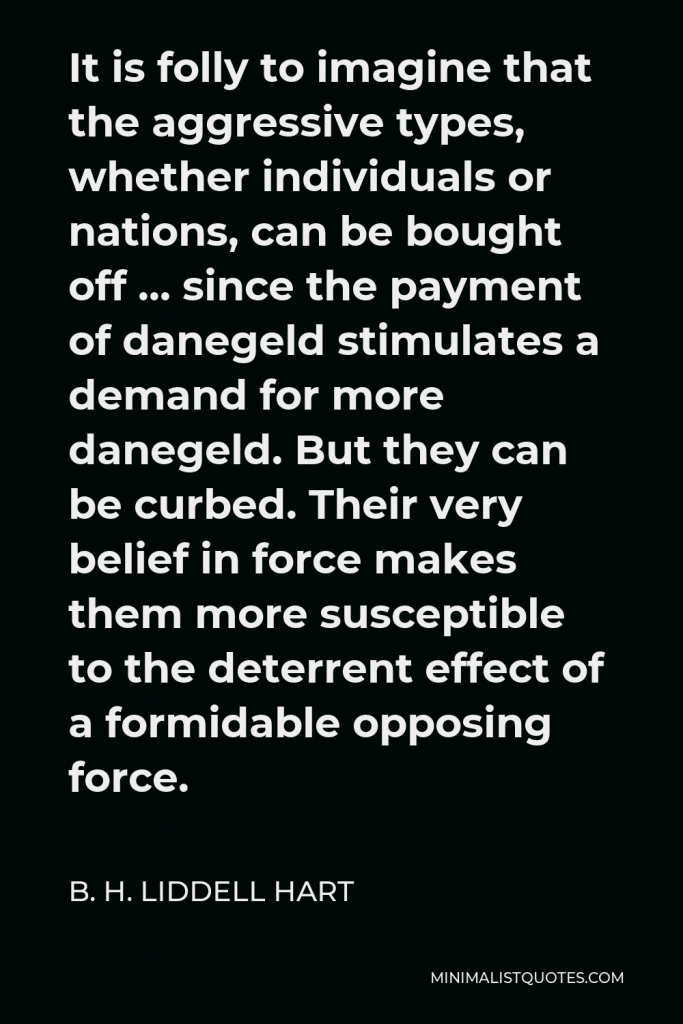

It is folly to imagine that the aggressive types, whether individuals or nations, can be bought off … since the payment of danegeld stimulates a demand for more danegeld. But they can be curbed. Their very belief in force makes them more susceptible to the deterrent effect of a formidable opposing force.
B. H. LIDDELL HART -





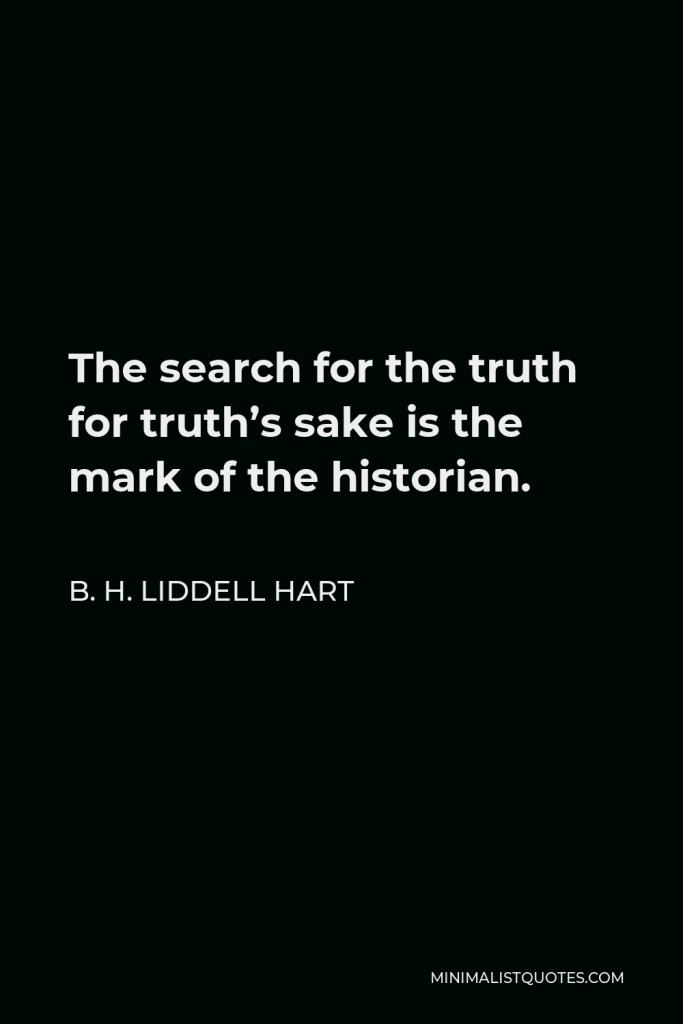

The search for the truth for truth’s sake is the mark of the historian.
B. H. LIDDELL HART -





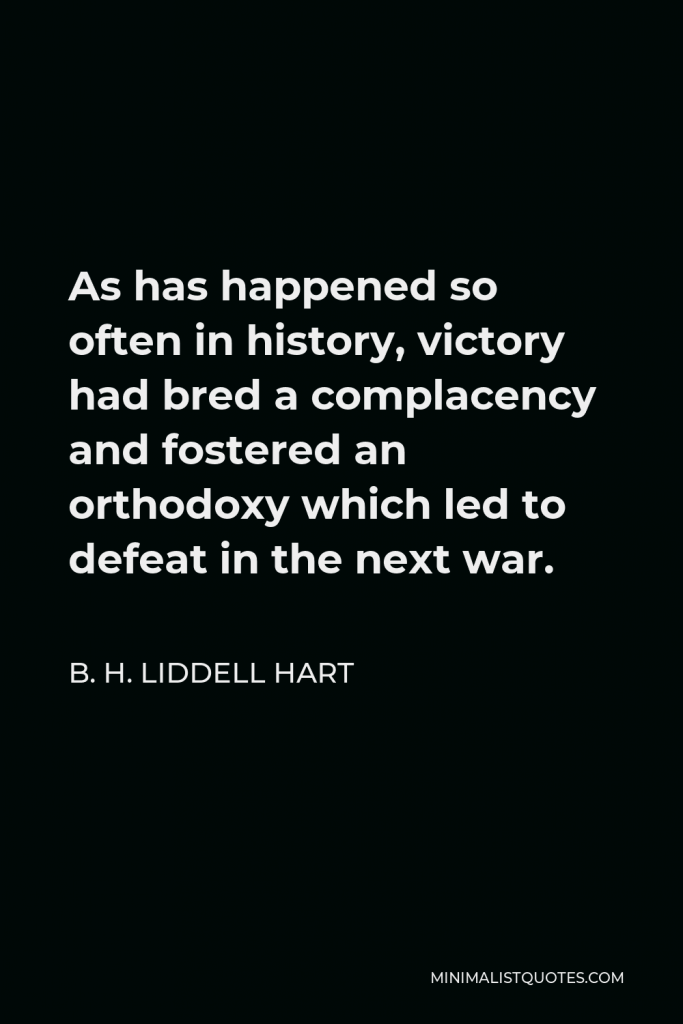

As has happened so often in history, victory had bred a complacency and fostered an orthodoxy which led to defeat in the next war.
B. H. LIDDELL HART -





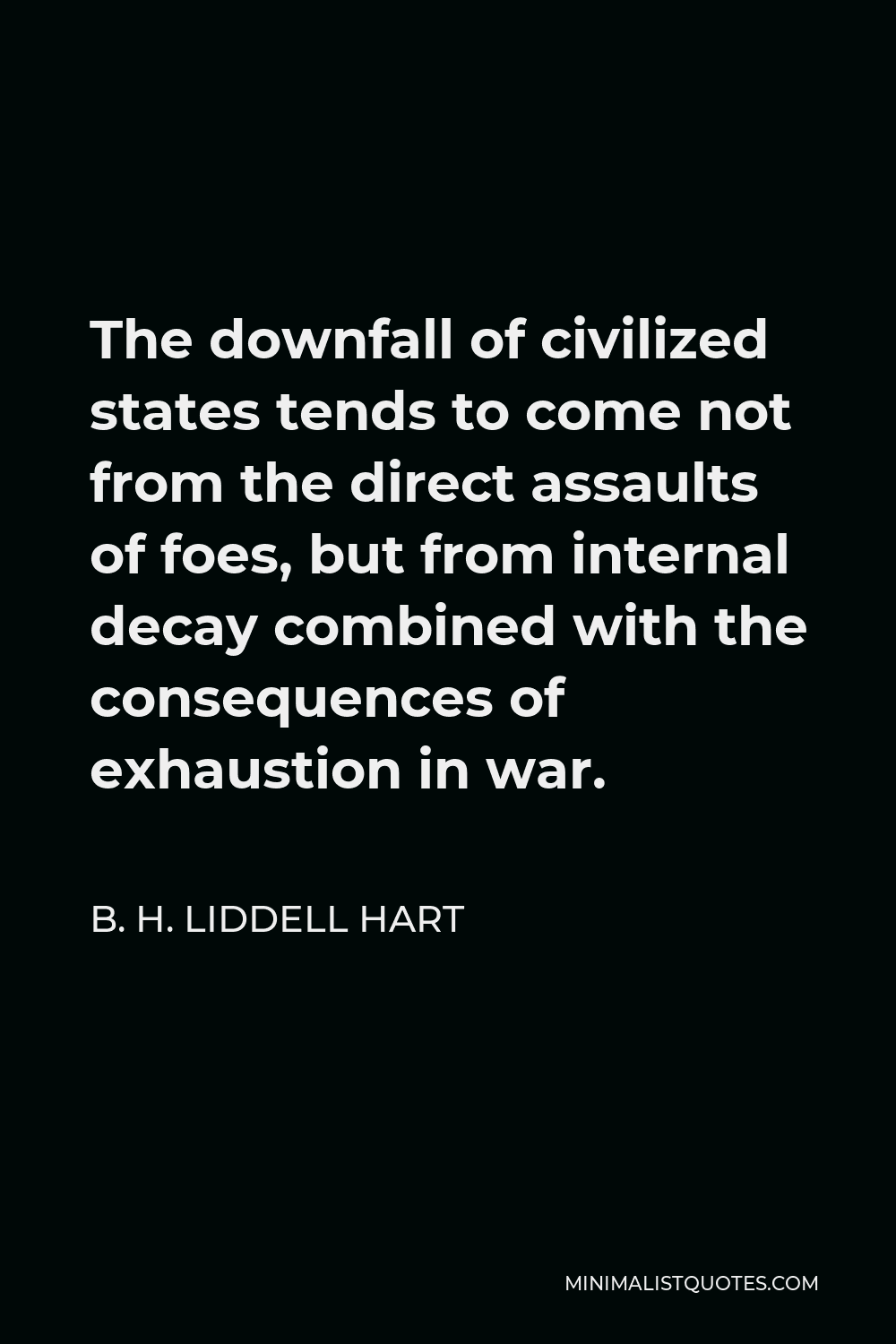
The downfall of civilized states tends to come not from the direct assaults of foes, but from internal decay combined with the consequences of exhaustion in war.
B. H. LIDDELL HART -





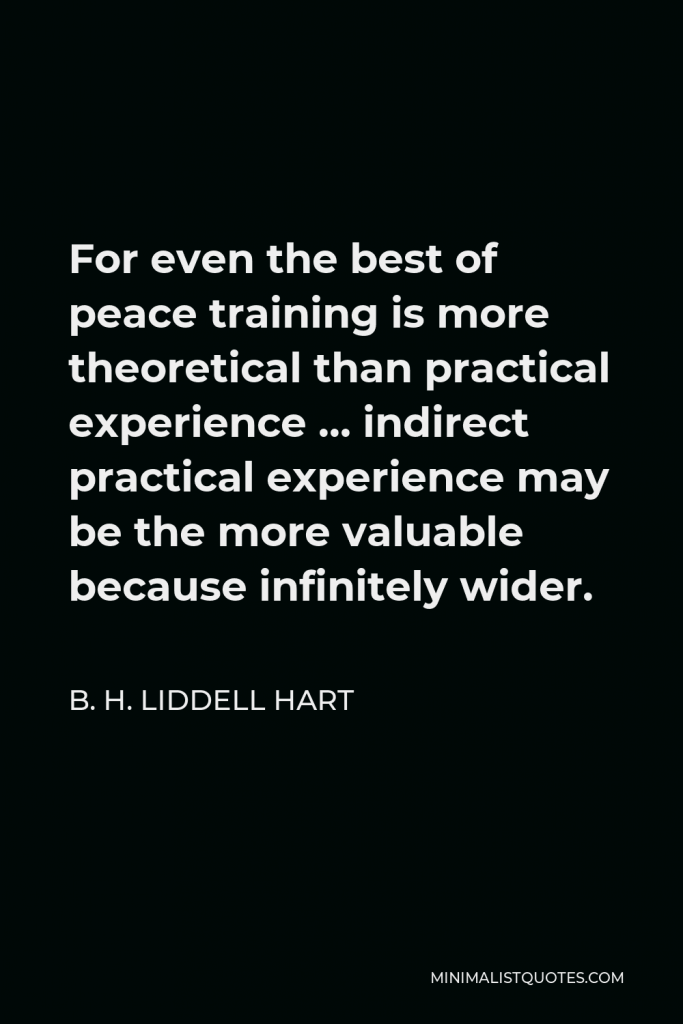

For even the best of peace training is more theoretical than practical experience … indirect practical experience may be the more valuable because infinitely wider.
B. H. LIDDELL HART -





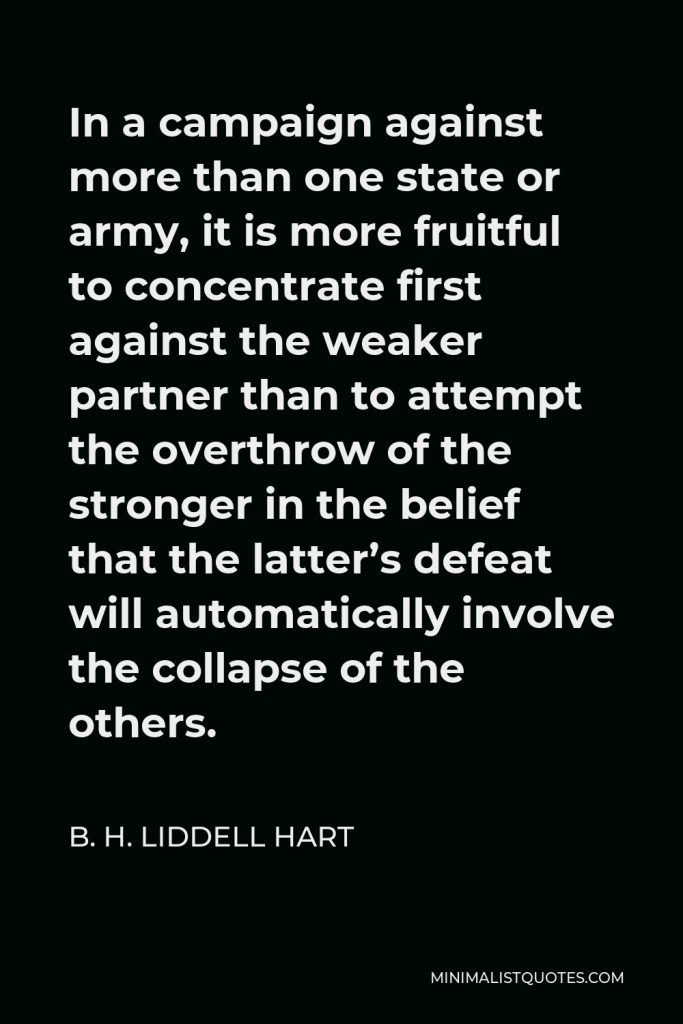

In a campaign against more than one state or army, it is more fruitful to concentrate first against the weaker partner than to attempt the overthrow of the stronger in the belief that the latter’s defeat will automatically involve the collapse of the others.
B. H. LIDDELL HART -





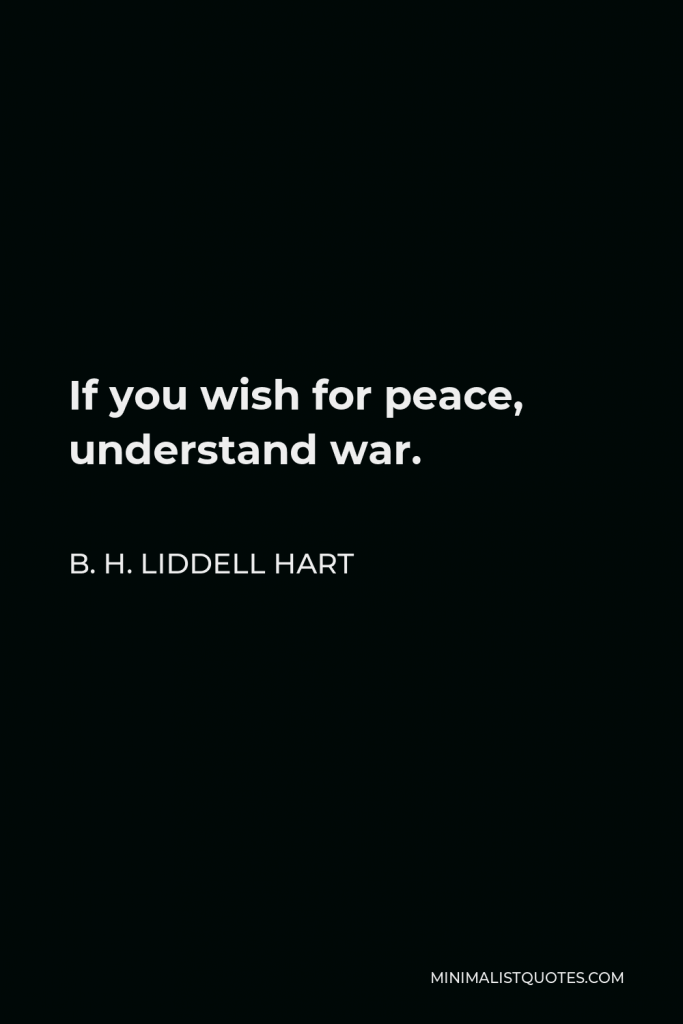

If you wish for peace, understand war.
B. H. LIDDELL HART
